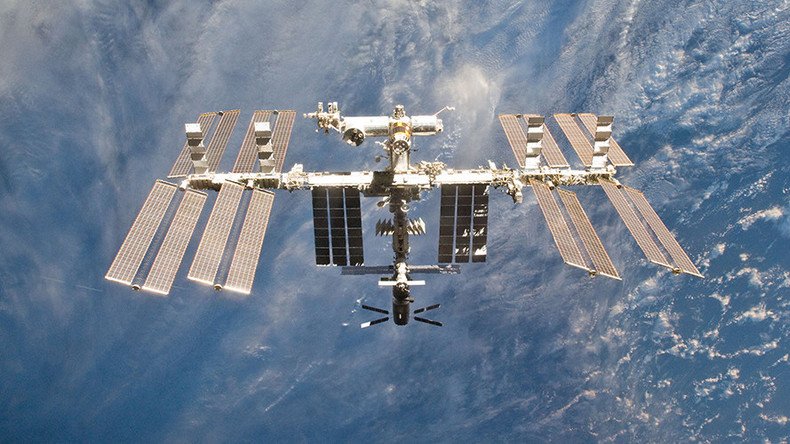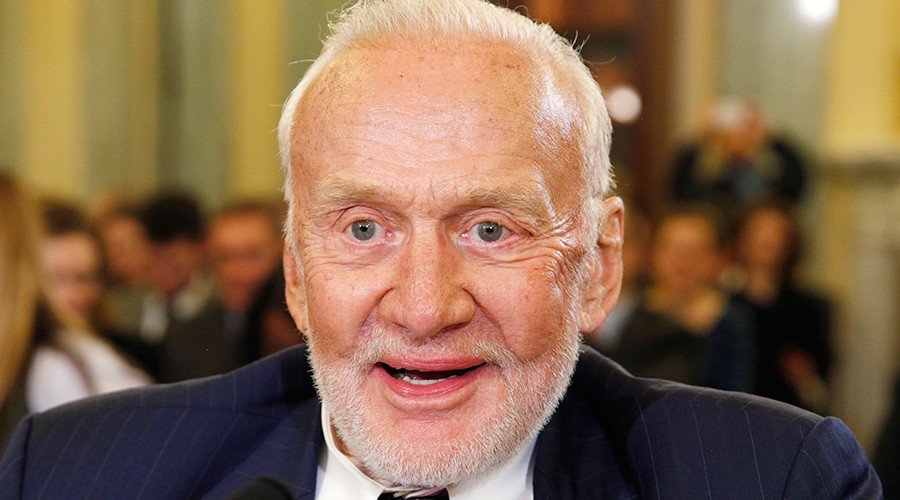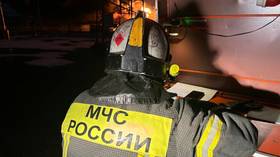‘No flags & footprints’: Buzz Aldrin’s plan for colonizing Mars means no more ISS

Space travel pioneer and former NASA astronaut Buzz Aldrin’s bold vision for mankind’s future in space includes NASA ditching the International Space Station and focusing exclusively on getting humans to Mars.
"We must retire the ISS as soon as possible… We simply cannot afford $3.5 billion a year of that cost," Aldrin said Tuesday when speaking at the 2017 Humans to Mars conference in Washington, DC.
Aldrin believes NASA’s efforts and financial resources should be devoted to getting humans to Mars. He said that Low Earth Orbit (LEO) missions around the Earth would be better suited to private industry, such as SpaceX, Orbital ATK, Blue Origin and Boeing among others.
READ MORE: A step closer to Mars: SpaceX test fires ‘world’s most powerful rocket’ (VIDEO)

Bigelow Aerospace, Axiom Space and other private companies should install their own space stations in orbit, freeing up NASA scientists and their vast expertise, for the arguably more important goal of transforming humanity into an interplanetary species.
In an ideal scenario, there would be high levels of cooperation and coordination between private enterprise from across the globe, especially between the forerunners – US, Russia and China, which aims to establish its own orbital station by the early 2020s. Such cooperation may be easier said than done, however.
Aldrin’s plan for colonizing Mars depends on private industry handling the grunt work closer to home and acting as a resupply base for ‘cyclers,’ or cargo spaceships that would run in a continuous loop between the Red Planet and Earth. His plan is firmly grounded in reality though, drawing on his own experiences with spaceflight.
"The foundation of human transportation is the cycler," the 87-year-old NASA pioneer said. "Very rugged, so it'll last 30 years or so; no external moving parts."
READ MORE: Cosmic concrete ideal for Mars can make Red Planet settlement a reality
Stage one would involve establishing a more diverse orbital presence before constructing a series of cyclers that would run between LEO and the moon with a view to creating a lunar base.
Such a base would, in turn, allow scientists to develop the tools and techniques necessary to effectively colonize Mars while simultaneously reducing the overall risk, given the extraordinarily high up front cost of transporting materials and people to the Red Planet.
In terms of a rough timeline, Aldrin estimates that with sufficient willpower and the correct allocation of resources, mankind could manage a crewed mission to a near-Earth asteroid by 2020 and a Venus flyby by 2024. With regards the Red Planet, he is a little more realistic than optimistic.
READ MORE: Happy Martian New Year: NASA’s alien imagery from the Red Planet (PHOTOS)
He believes that, with all elements running as smoothly and effectively as humanly possible, the first Martian colonies could be established by the early 2030s. The first humans on Mars, in Aldrin’s vision, would be settlers, not tourists.
"Let's be certain that we've developed a sustainable plan to stay on Mars," he said. "No flags and footprints this time."
At present, ISS has enough funding to last until 2024, but officials from both the Russian Federal Space Agency and NASA have considered the possibility pumping additional funding into the billion-dollar enterprise to increase its lifespan until 2028.












